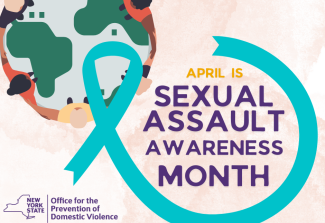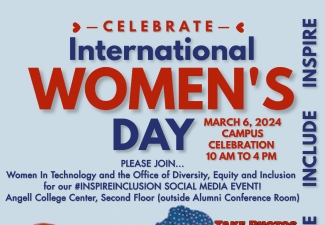Memory Cafes Offer Comfort for Caregivers, Care-Receivers
Nancy Carey slowly stood up to start dancing to the sweet voice of local musician Mitch Willette.
She tapped her foot to “You Are My Sunshine,” and swayed to the rhythm of the music. She donned her nice clothes — black pants, a black cardigan and a colorful shirt with gems. She wore glasses with a thick black frame and blush on her cheeks.
Carey, who suffers from dementia, was dressed up for the Memory Café, an initiative of the Alzheimer’s Disease Caregivers Support Initiative facilitated by SUNY Plattsburgh’s Center for Neurobehavioral Health.
A Place to Go
Carey, and her daughter and caregiver, Lisa Frennier, attended the once-monthly, in-person
gathering that provides people suffering from Alzheimer’s and other dementias and
their caregivers a place to participate in activities, listen and dance to live music
and meet with others who share their stories.
The Caregivers Support Initiative hosts cafes in Plattsburgh, Malone, Queensbury, Indian Lake and Keene Valley. At the Plattsburgh site, in the basement of the Wesleyan Church on Military Turnpike, the October Memory Cafe was held on a warm, sunny day. Doors were open, and light flooded through the windows. Tables, situated in a square, had pumpkins placed on mats. There were snacks and light refreshments at another table and constant live music.
Willette performed songs by Johnny Cash, Elvis Presley, the Beach Boys — songs and singers from the past — for a private concert for two: Carey and her daughter were the only participants that month.
Valarie Drown, project director of the Caregiver Support Initiative, said attendance at the cafes fluctuate. Sign-up sheets aren’t used to avoid making people feel obliged to attend. But regardless of attendance, staff works to keep the Memory Cafes “cheerful and fun.”
Opportunity to Talk to Others
For Frennier, who retired in 2021 from SUNY Plattsburgh’s Office of Institutional Advancement as an administrative assistant, the café serves as an opportunity to speak with others who care for those with dementia.
Frennier said it’s been “a learning experience” becoming her mother’s full-time caregiver not long after retiring. Frennier said she helps drive her mother places, track medications and meals, and attends her doctors appointments.
There were also unexpected arrangements to tend to, like funeral arrangements and cleaning through Carey’s home. She said she feels a sense of “lost freedom,” which is common among caregivers. She has people stay with her mother at night so she can sleep; she goes on walks when she can, and she’s learned to rest when Carey does.
Her mantra is “one day at a time.”
“A lot of times caregivers are burdened down with stress,” said Megan Monica, care navigator with the Care Initiative. “And (Memory Cafes) are a place to let go of that, and you see a lot of laughs.”
Monica provides support to caregivers by organizing events like the cafes and by offering resources to help the caregiver and care-receiver; sometimes she just brings coffee to the caregiver’s home and lends an ear.
Grants Help Support Initiative
The Memory Cafes were launched in 2015 when the Support Initiative received a initial $7.5 million to launch services. One of the grant’s objectives was joint enrichment — for caregivers as well as those suffering from dementia. Memory Cafes were ideal, offering respite and diversion in a safe and stimulating environment.
A new, $8.25 million grant was awarded at the start of 2022 to reach underserved populations and lower socioeconomic status.
“As someone continues down a journey of dementia, you stop the ability to make good memories. So, having the joint enrichment time together, it allows the caregiver and the care receiver to make new memories — maybe not the same that they used to do before. But it allows them that time together to do something, something that's enriching to both of them,” Drown said.
The cafes provide a different activity each month, like making candle jars, pie dough
or Christmas ornaments. The Support Initiative also provides a monthly virtual Memory
Cafe for those that are unable to attend in-person or want to do both.
Memory Cafes are just a portion of the services that the Support Initiative provides. The grants help fund care consultations, caregiver support groups, respite, training and educational programs, technology-based services and caregiver wellness.
Frennier wants to enroll in more hours with a care navigator and utilize more services. With Carey’s medications and doctor visits, it can be expensive, and resources or guidance is useful. She also helps her mother stretch her money by getting meals from local churches.
‘What More You Can Do’
Monica described caregivers having this need to be “superhuman, and they are always thinking about what more they could do.” Many times, Monica said she thinks to herself, “I don’t know what more you can do.” In Drown’s and Monica’s experience, caregivers will not recognize themselves as a caregiver, but just someone who is helping a loved one.
Their goal is to relieve some of the burden by helping in different ways. It could be providing a care receiver with a raised-toilet seat, listening to a caregiver, offering support groups or finding ways for memories to be made.
The New York State Department of Health complimented the Support Initiative for their family consultations, according to Drown. The North Country outranks New York City in family consultations. Drown contributes this to the sense of community within the North Country.
“I’m very proud of that,” Drown said. “I think it’s wonderful that we’re meeting the needs of the families in the North Country.”
Memory Cafes are at the following locations:
- Plattsburgh, fourth Wednesday of each month, Turnpike Wesleyan Church, 2224 Military Turnpike
- Indian Lake, second Tuesday of each month, Indian Lake Senior Center, 6358 Route 30
- Keene Valley, fourth Wednesday of each month, Keene Valley Library, 1796 Route 73
- Malone, second Thursday of each month, Living Hope Church, 57 Rennie St.
- Queensbury, third Monday of each month, Queensbury Senior Center, 743 Bay Road
To learn more about the Alzheimer's Disease Caregivers Support Initiative, visit www.wehelpcaregivers.com.
— Story, Photos by Communications Intern Olivia Bousquet
News
Alumni Celebrated for Sustained Support of North Country, Residents

SUNY Recognizes Two Plattsburgh Seniors for Excellence in Academics, Leadership

Sexual Assault Awareness Month Events Planned Throughout April
‘Day of Visibility’ Recognizes, Highlights Members of Transgender Community
SBE Teams with CVPH Medical Center to Train Management Personnel
